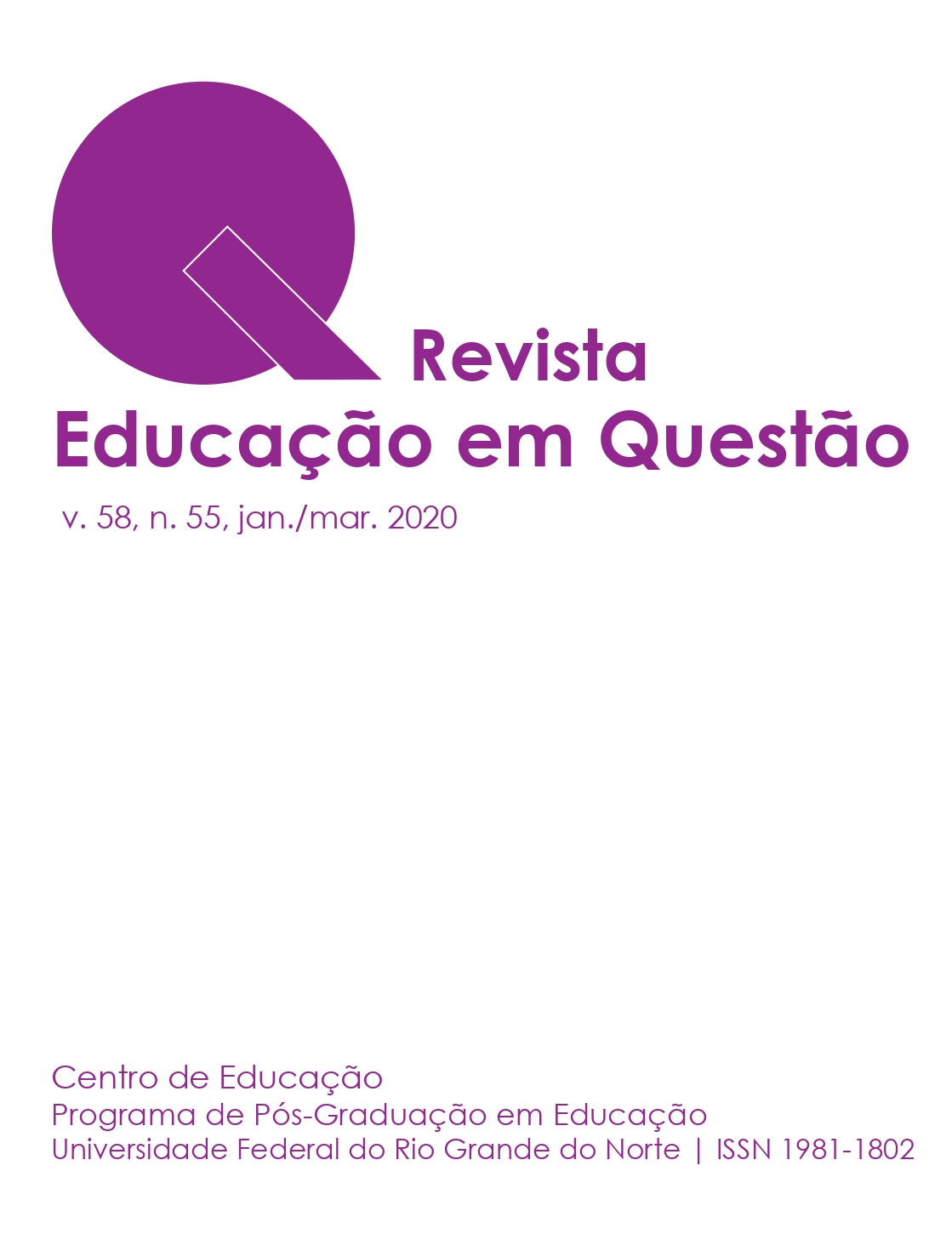Telling stories of those who fell asleep forever:
children's narratives motivated by literary reading
DOI:
https://doi.org/10.21680/1981-1802.2020v58n55ID19424Keywords:
Children's Literature. Death. Reading. Narrative.Abstract
Death is not currently considered a topic for talking to children. A taboo theme in our society in general is commonly dealt with in children's narratives from analogies that try to soften emotions and feelings such as pain, suffering and loss. In this paper, we articulate the field of children's literature - specifically the studies of the presence of death in children's works - the studies of death and children's narratives. We analyzed the narratives produced by children of a 4th grade public school class after a shared reading session of Ziraldo's “Menina Nina” whose central theme is death. The reading of such a work aroused in the children the motivation to tell their own stories with the theme, with elements of their daily life, such as violence and religiosity. We understand that reading and talking about the topic are important tools for the expression of children's emotions about death, loss and grief.
Downloads
References
ARIES, Philippe. O homem diante da morte. Tradução Luiza Ribeiro.São Paulo: Editora da UNESP, 2014
CHAMBERS, Aidan. Dime. Espacios para lalectura. Mexico: Fondo de Cultura Economica, 2007.
CHAMBERS, Aidan. Conversaciones.Mexico: Fondo de Cultura Economica, 2008.
COSSON, Rildo. Círculos de leitura e letramento literário. São Paulo: Contexto, 2014.
CRINON, Jacques; MARIN, Brigitte, LALLIAS, Jean-Claude. Enseigner la littérature. Paris: Nathan, 2006.
DIAZ, FanuelHanán. Variações sobre o tratamento dado ao tema morte na literatura infantil. Revista latino-americana de literatura infantil e juvenil. Bogotá, n. 4, p.2-11. Jul/dez 1996.
ELIAS, Norbert Elias. A solidão dos moribundos. Tradução Plinio Dentzien.Rio de Janeiro: Jorge Zahar Editor, 2001.
FRANÇOIS, Frédéric. A narrativa: espaço de jogo, experiência(s) e reflexão. In: DEL RÈ, Alessandra; PAULA, Luciane de; MENDONÇA, Marina Célia (orgs.) Explorando o discurso da criança. São Paulo: Contexto, 2014.
Tradução de Pietra Acunha Pereira e Paulo Santos.
GADELHA, Yvanna Aires; MENEZES, Izane Nogueira. Estratégias lúdicas na relação terapêutica com crianças na terapia comportamental. Univ. Ci. Saúde. Brasília, v. 2, n. 1, p. 1-151, jan./jun. 2004.
KELLEHEAR, Allan. Uma história social do morrer. Tradução Antônio Oliveira de Araújo. São Paulo: Editora UNESP, 2016.
MANGUEL, Alberto. Lendo imagens. Tradução Rubens Figueiredo, Rosaura Eichemberg, Cláudia Strauch. São Paulo: Companhia das Letras, 2001.
MENDES, Teresa de Lurdes Frutuoso. A morte dos avós na Literatura Infantil: análise de três álbuns ilustrados. Educação & Realidade. Porto Alegre, v. 38, n.4, p.1113-1127,out/dez 2013.
PETIT, Michèle. Os jovens e a leitura: uma nova perspectiva. Tradução Celina Olga de Souza. São Paulo: Editora 34, 2008.
SAVATER, Fernando. As perguntas da vida. Tradução Mônica Stahel. São Paulo: Martins Fontes, 2001.
VIEIRA DA CUNHA, Susana Rangel. Cenários da educação infantil.Educação &Realidade.Porto Alegre, v. 30, n.2. p. 165-185. Jul/dez 2005.
ZIRALDO. Menina Nina, duas razões para não chorar.São Paulo: Melhoramentos, 2002.
Downloads
Published
How to Cite
Issue
Section
License
The Journal Education in Question shall retain the copyright in all articles that it publishes.
The authors and co-authors of articles and book reviews, published in the Journal Education in Question, shall wait for at least 1 (one) year before they are allowed to submit new works for publication.






